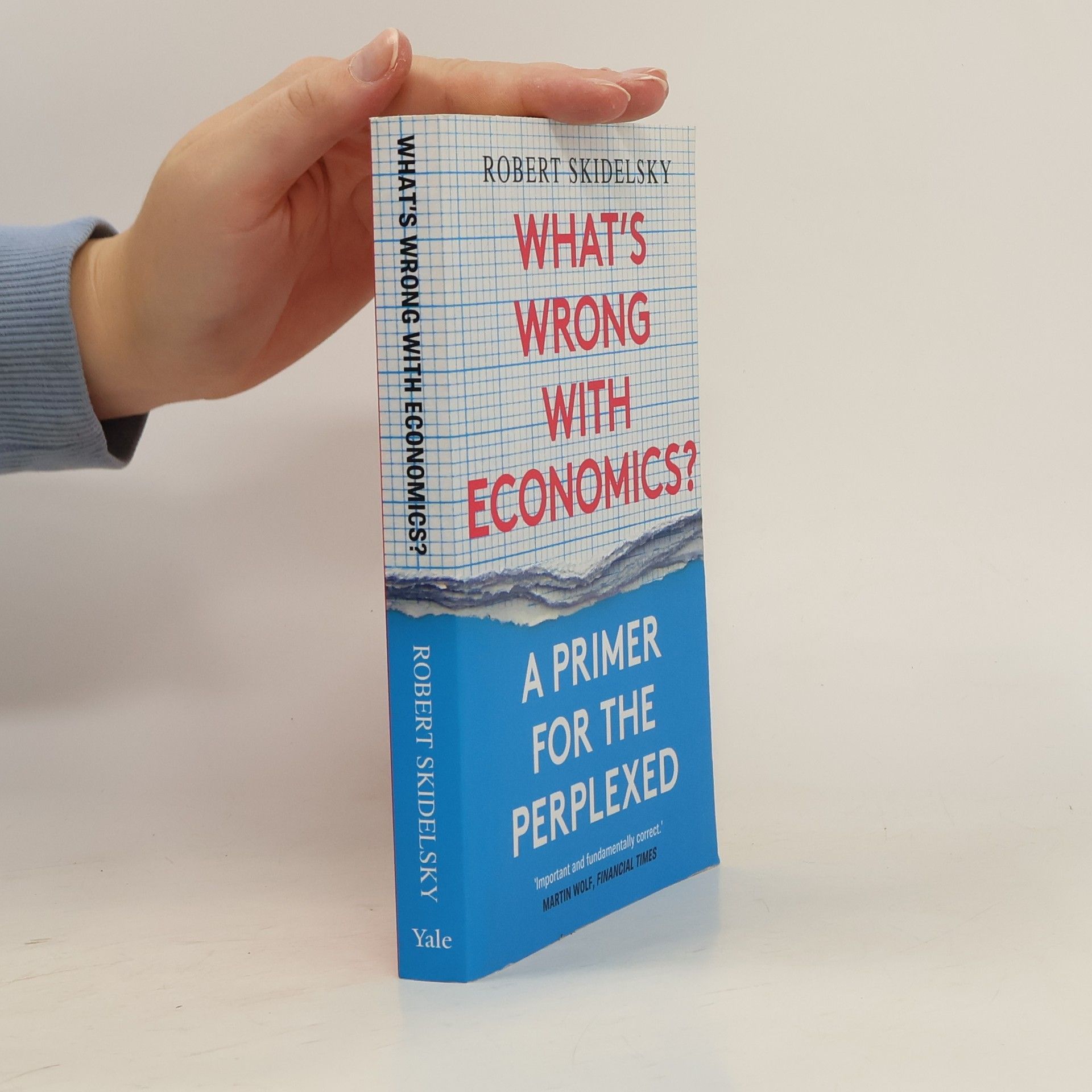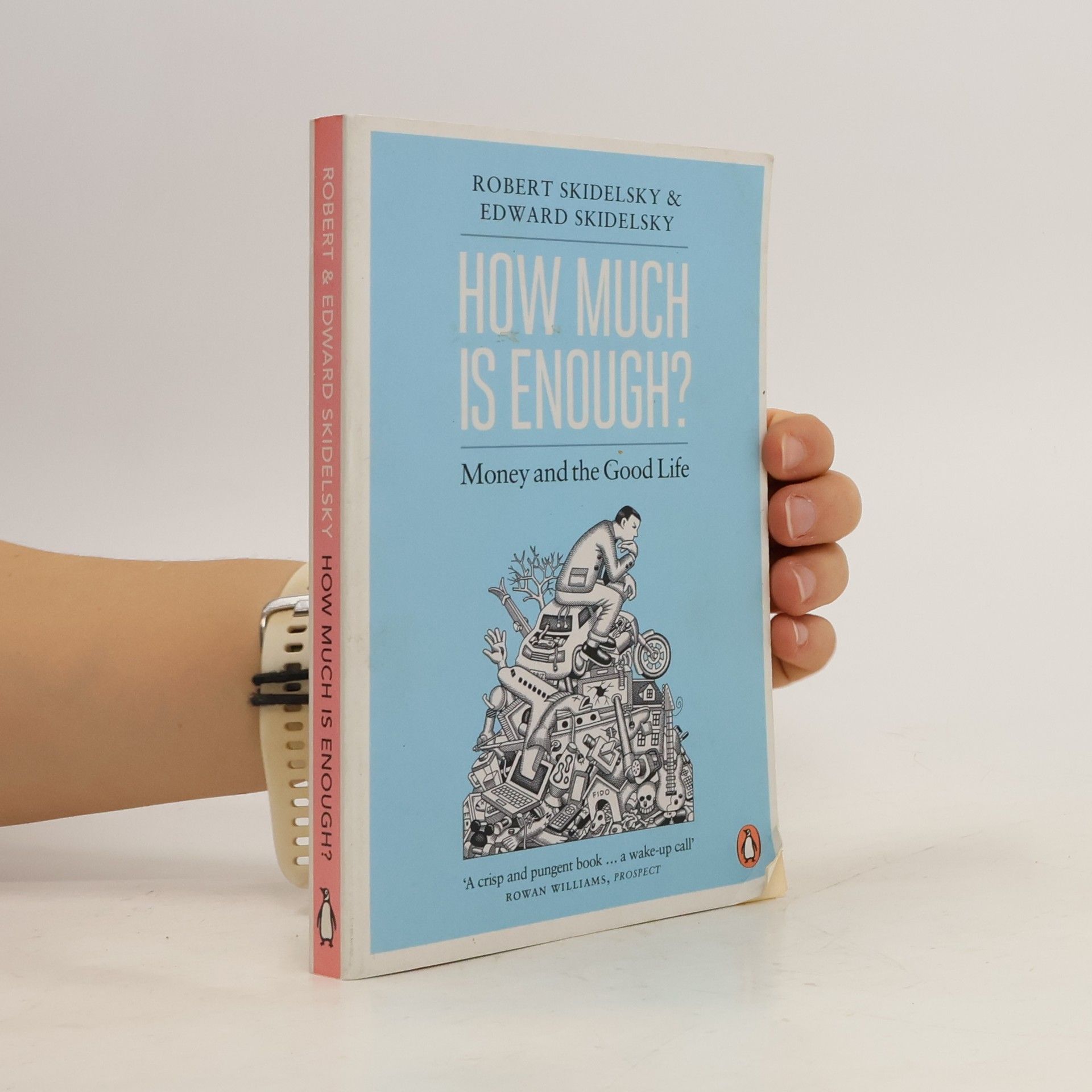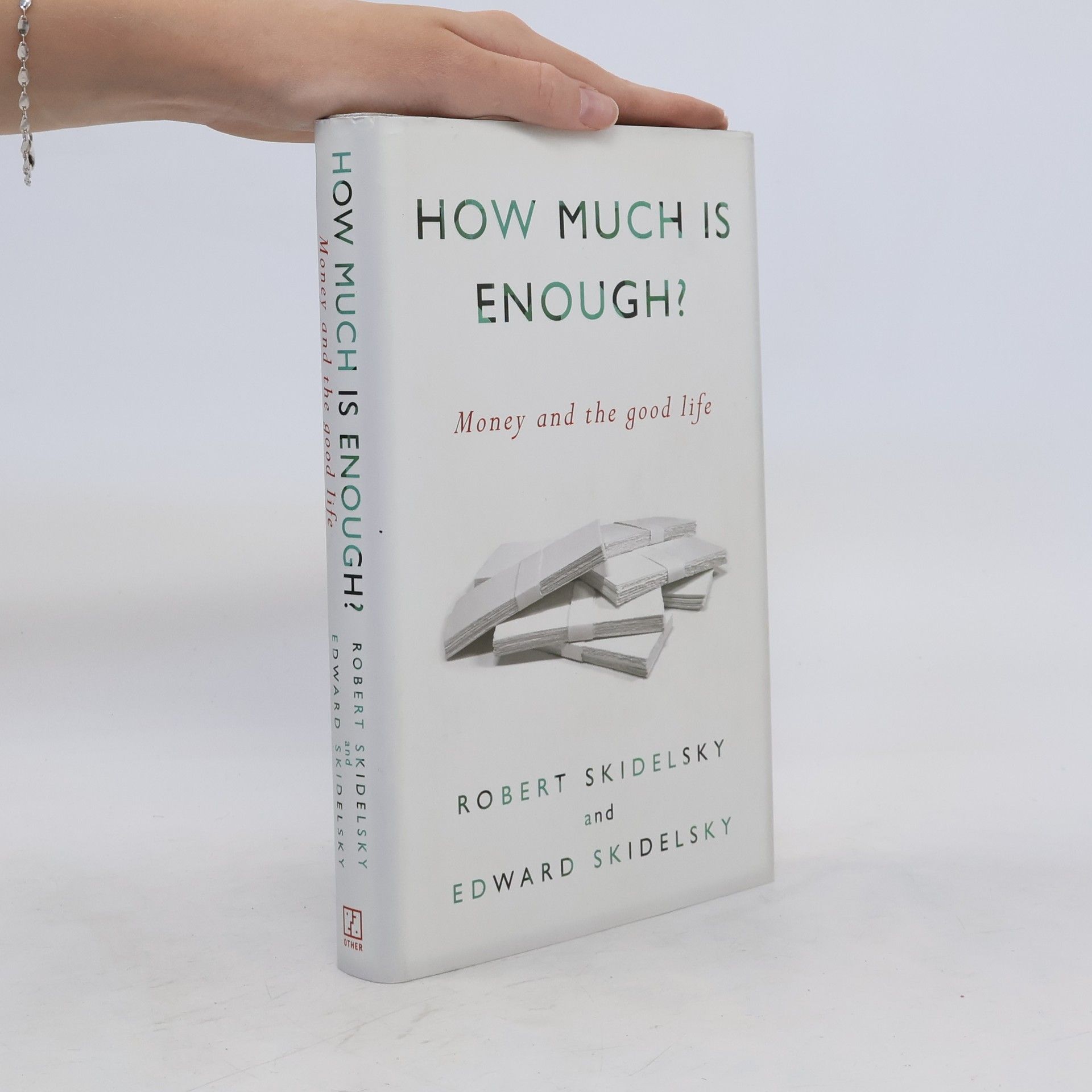Exploring humanity's complex relationship with machines, the book examines the waning faith in technology as a solution to societal issues. It highlights concerns about automation, surveillance, and the potential threats from artificial intelligence. The narrative traces the evolution of our interaction with tools, questioning why certain regions advanced technologically. By intertwining philosophy, science, economics, and fiction, the author advocates for understanding technology as a system of ideas, urging a conscious choice in its application to better serve human needs and aspirations.
Robert Skidelsky Book order (chronological)
Lord Skidelsky is an Emeritus Professor of Political Economy whose work delves into the role of the state in economic affairs and the repercussions of globalization. His extensive biographies of J. M. Keynes and his writings on communism reveal a deep engagement with pivotal figures and ideologies of the 20th century. Skidelsky's prose is analytical and incisive, tackling complex economic and political subjects. His scholarship often draws historical parallels, offering profound insights into the challenges facing the contemporary world.
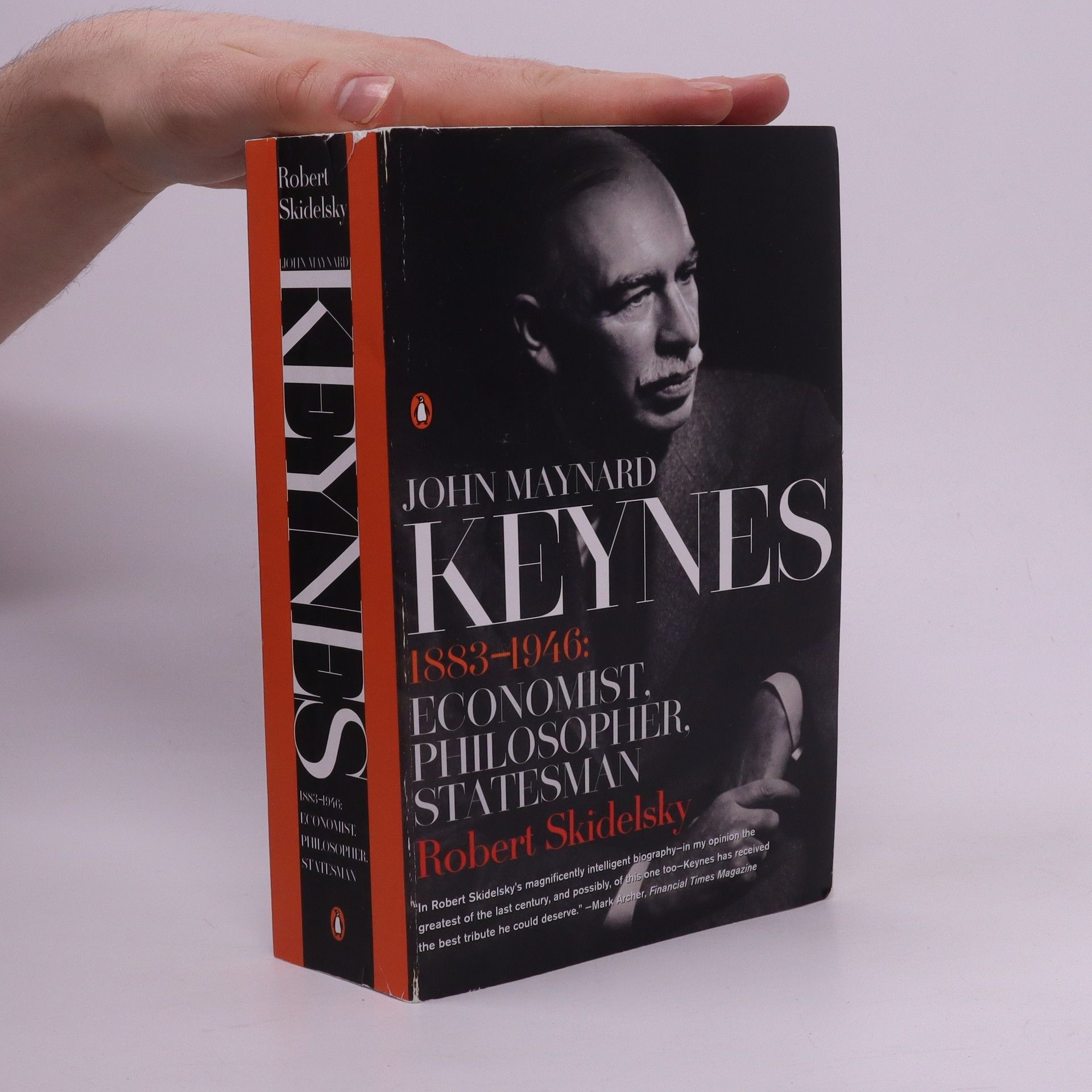
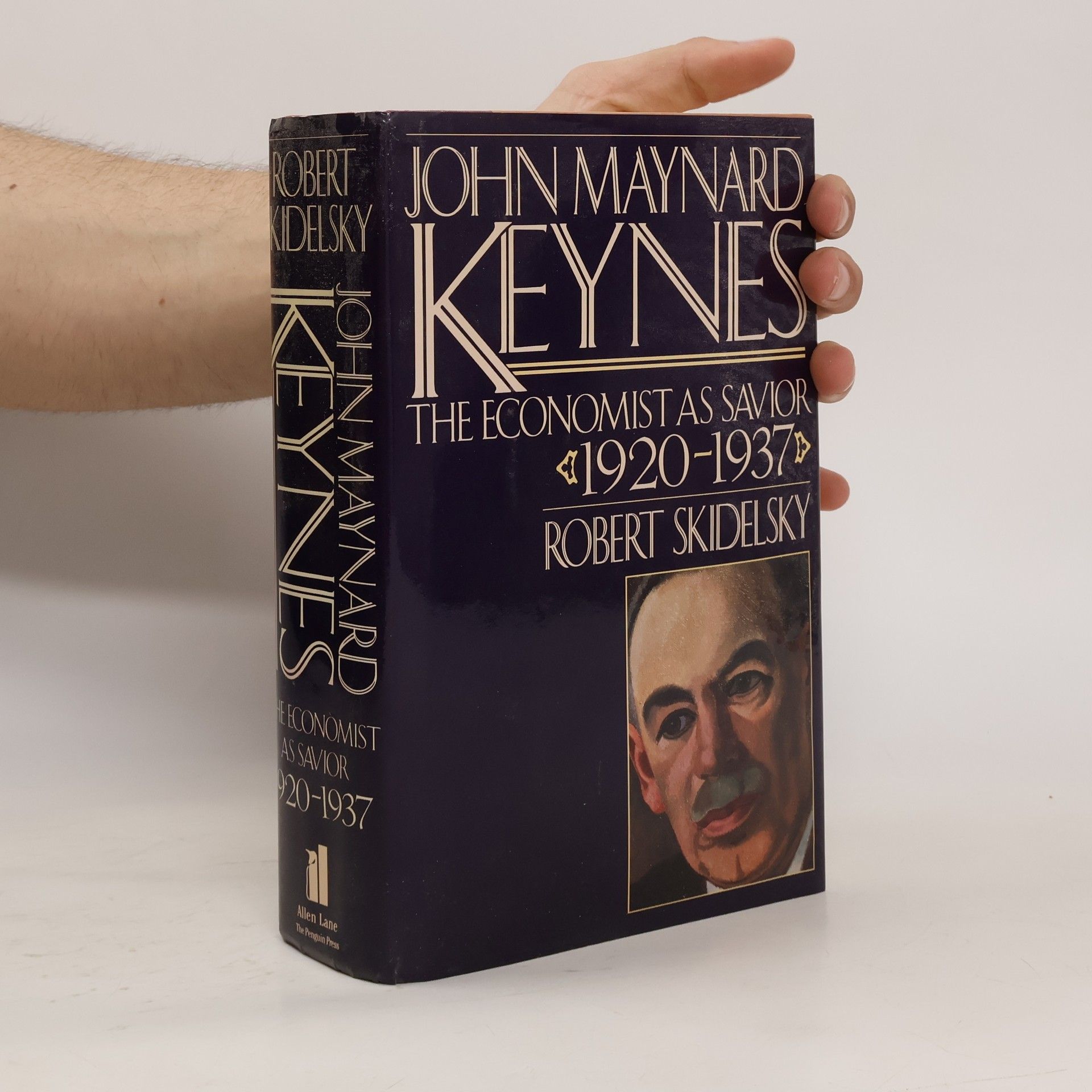
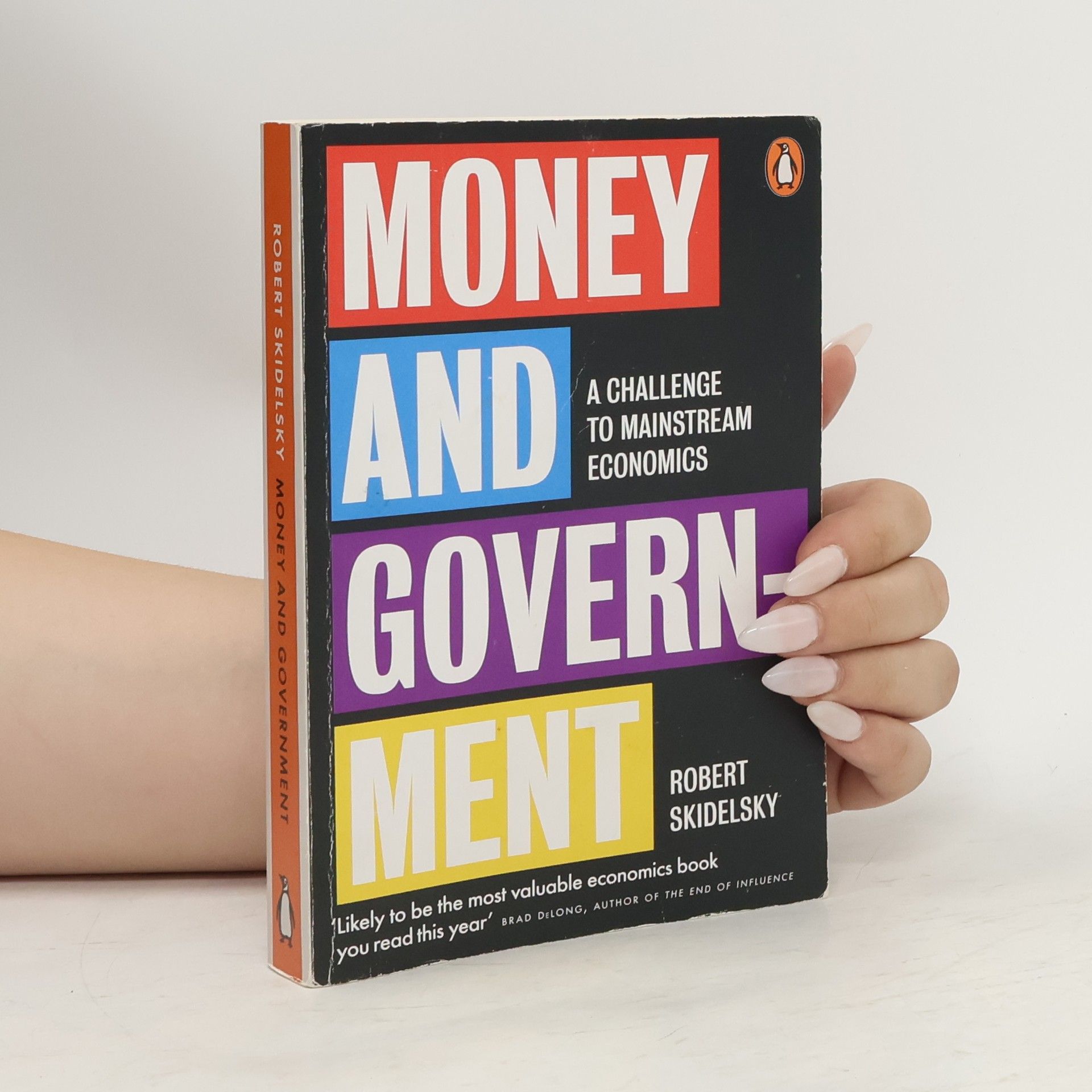
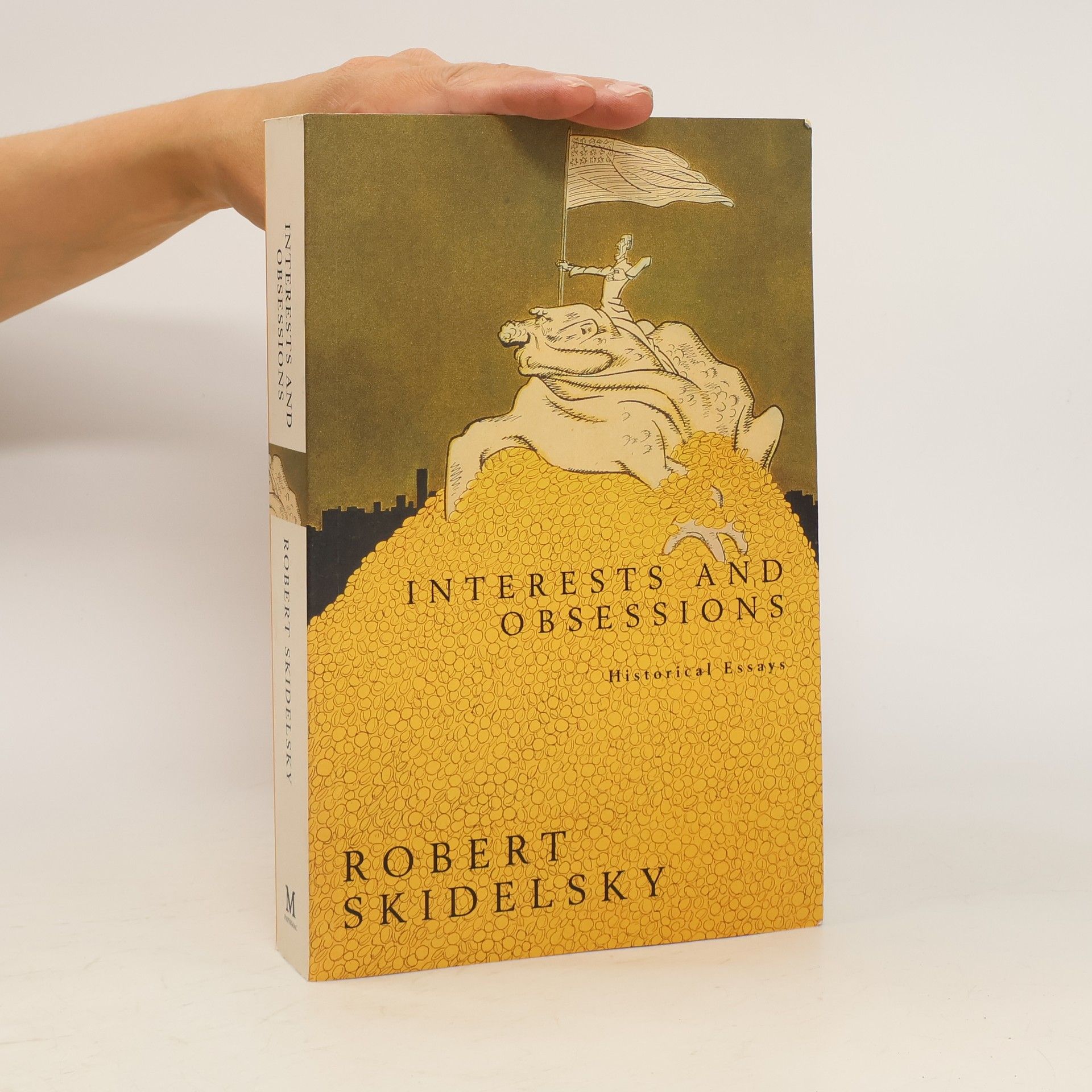
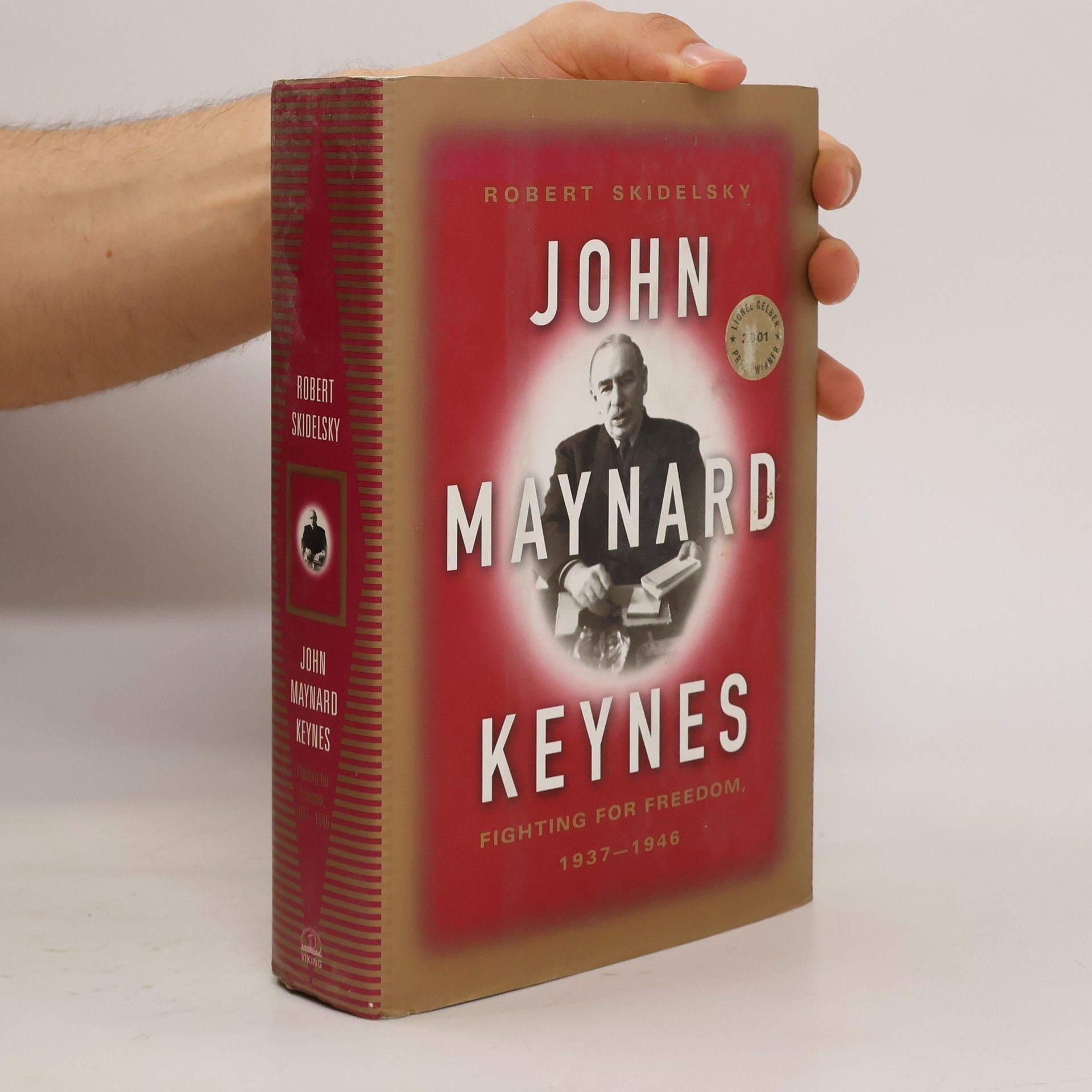
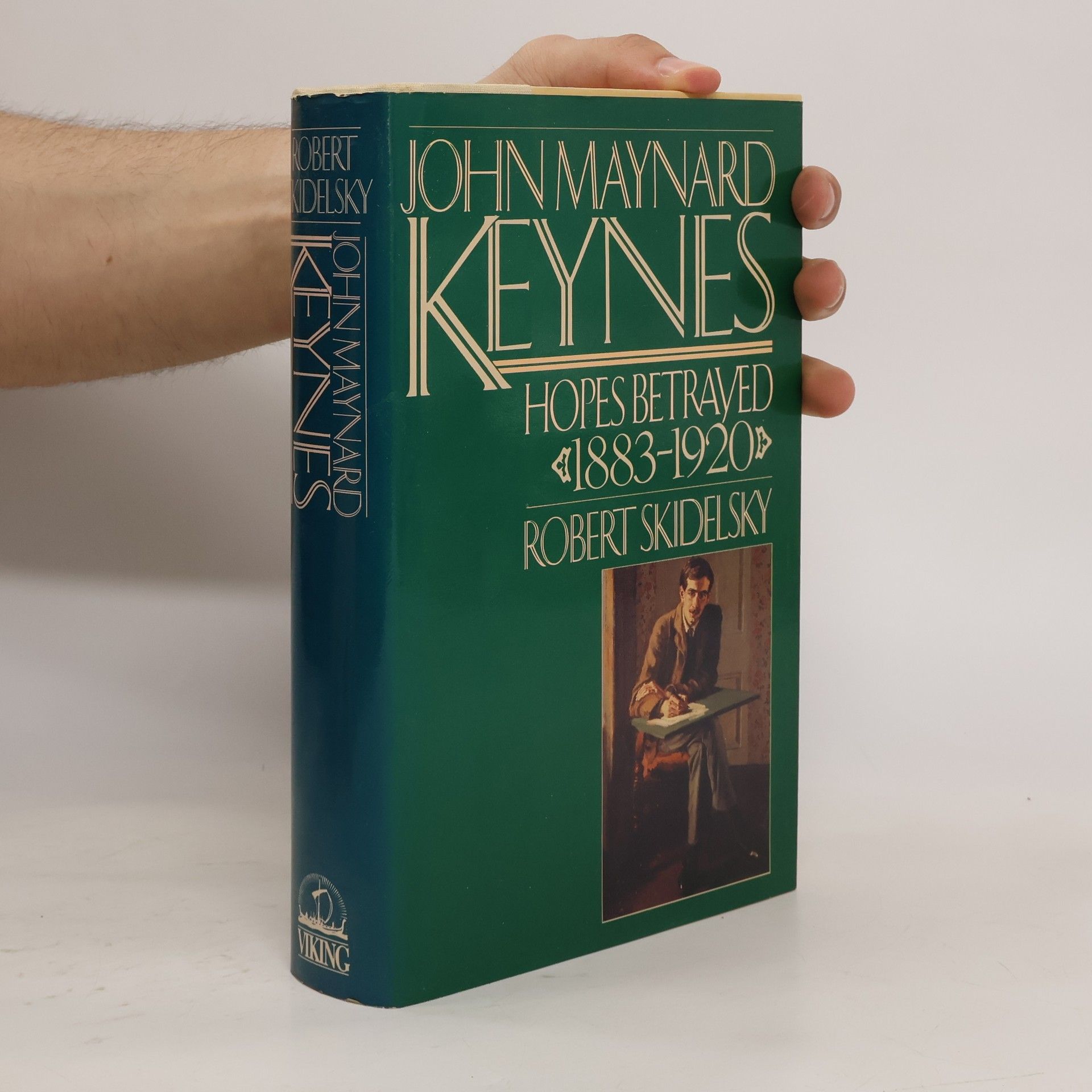
Werden wir ersetzt?
Vom Fortschrittswahn zu einer Ökonomie des gerechten Lebens
- 400 pages
- 14 hours of reading
Wie sich das Verhältnis von Mensch und Maschine entwickelt hat, wie es unsere Wirtschaft und unser Leben beeinflusst und welche politischen Weichen wir jetzt stellen müssen, darüber schreibt Robert Skidelsky kenntnisreich und erhellend. Es ist ein alter Menschheitstraum, von Mühsal und Not befreit zu sein. Ein Traum, der durch die rasante technologische Entwicklung sowohl zu einer realistischen Perspektive als auch zu einer realen Bedrohung wird, wenn nur einige wenige von diesem Fortschritt profitieren, während er für zu viele mit Arbeitslosigkeit, Abhängigkeit und Armut einhergeht. Zeit, sich die Grundfragen neu zu stellen: Kontrollieren wir die Maschinen oder kontrollieren die Maschinen – und die, denen sie gehören – uns? Was droht uns im Fortschrittswahn verloren zu gehen? Wie können wir eine gerechte Arbeitswelt und ein gutes Leben für alle organisieren? Robert Skidelsky erzählt kenntnisreich die wechselhafte Beziehung von Mensch und Maschine: Wie haben führende Denker, von der Antike bis ins 21. Jahrhundert, über den technischen Fortschritt – von den ersten Werkzeugen bis zur künstlichen Intelligenz – und seine Auswirkungen auf die Menschheit nachgedacht? Ein grundlegendes Buch zu den drängenden Fragen unserer Zeit, das uns zeigt, auf was wir jetzt achten müssen, damit wir unsere Zukunft in der eigenen Hand behalten.
A sweeping history of and meditation on humanity's relationship with machines, showing how we got here and what happens nextWe live in a world made by machines; their development set its beat. This book tells the story of our relationship with machines from humanity's first tools down to the present and into the future. It charts the causes and courses of technological progress across epochs, revealing its impedances and accelerants, its interactions with capital and ascent to the first principle of the modern era.Tracing the promise of machines to liberate us from work and want and the accompanies threat of redundancy and subjection from ancient times to our own, Robert Skidelsky demonstrates how our creations not only reflect our ideas and ideals but also remake them. Taking in the peaks of philosophy and triumphs of science, the foundation of economics and speculations of fiction, he undertakes a fascinating intellectual journey through the evolution of our understanding of technology, and what this means for our lives and politics. It is an account that offers an escape from many assumptions about the potential and perils of machine learning and the technologies shaping the world now - and from the risks they pose to the future.
Welche Auswirkungen werden Automatisierung und künstliche Intelligenz auf die Arbeit und das "gute Leben" haben? In einer Reihe von Essays beleuchtet Robert Skidelsky die weitreichenden Implikationen der modernen Entwicklungen der Arbeit und skizziert Handlungsmöglichkeiten.Zwar trägt die Reduktion von Arbeitszeit wesentlich zu materiellem und spirituellem Wohlergehen bei, aber die von Keynes vorausgesagte 15-Stunden-Arbeitswoche ist auch in den führenden Industrieländern nie verwirklicht worden. Worin bestehen heute die notwendigen Voraussetzungen für eine Reduktion der Arbeitszeit und welche Möglichkeiten birgt sie? Robert Skidelsky plädiert für die Entwicklung einer Ethik, die auf die Ziele der Technologie fokussiert. Ein Leben, das zugleich menschlich und menschenwürdig ist, ist nur durch die Förderung der Freizeitausbildung anstelle eines sinnlosen Wettlaufs des Menschen mit Maschinen und durch die Würdigung der Unvollkommenheit als Voraussetzung aller menschlichen Bemühungen möglich.
"A passionate and informed critique of mainstream economics from one of the leading economic thinkers of our time. This insightful book looks at how mainstream economics' quest for scientific certainty has led to a narrowing of vision and a convergence on an orthodoxy that is unhealthy for the field, not to mention the societies which base policy decisions on the advice of flawed economic models. Noted economic thinker Robert Skidelsky explains the circumstances that have brought about this constriction and proposes an approach to economics which includes philosophy, history, sociology, and politics. Skidelsky's clearly written and compelling critique takes aim at the way that economics is taught in today's universities, where a focus on modelling leaves students ill-equipped to grapple with what is important and true about human life. He argues for a return to the ideal set out by John Maynard Keynes that the economist must be a "mathematician, historian, statesman, [and] philosopher" in equal measure."--Provided by publisher.
Money and Government : A Challenge to Mainstream Economics
- 352 pages
- 13 hours of reading
In this remarkable work, Robert Skidelsky combines his expertise in a sweeping account of money and power. The prevailing economic view suggests that money and government should play a minimal role in economic life, portraying money merely as a medium of exchange and advocating for the 'invisible hand' of the market. However, this book argues that uncertainty makes money and government crucial in any market economy. Money is necessary because the future is unpredictable, and effective government can reduce this uncertainty, thereby diminishing the demand for money. Following Adam Smith, orthodox economics favored non-intervention until the Great Depression of 1929-32 challenged this perspective, leading to the rise of Keynesian economics as a new policy paradigm. Yet, the stagflation of the 1970s prompted a rejection of Keynesian policies in favor of neoclassical orthodoxy. Despite the severe 2008 financial crash, which was addressed with Keynesian measures, the pre-crash orthodoxy was reinstated, continuing to impose austerity measures that have left the global economy weak. This book seeks to introduce readers to the essential elements of Keynes's ideas, arguing that much of economic orthodoxy is not the hard science it claims to be. It aims to inspire the next generation of economists to recognize the vital roles of money and government in the economic landscape.
How much is enough? : money and the good life
- 272 pages
- 10 hours of reading
In 1930 the great economist Keynes predicted that, over the next century, income would rise steadily, people's basic needs would be met and no one would have to work more than fifteen hours a week. Why was he wrong?Robert and Edward Skidelsky argue that wealth is not - or should not be - an end in itself, but a means to 'the good life'. Tracing the concept from Aristotle to the present, they show how far modern life has strayed from that ideal. They reject the idea that there is any single measure of human progress, whether GDP or 'happiness', and instead describe the seven elements which, they argue, make up the good life, and the policies that could realize them.ROBERT SKIDELSKY is Emeritus Professor of Political Economy at the University of Warwick. His biography of Keynes received numerous prizes, including the Lionel Gelber Prize and the Council on Foreign Relations Prize for International Relations. He was made a life peer in 1991, and a Fellow of the British Academy in 1994.EDWARD SKIDELSKY is a lecturer in the Philosophy Department of the University of Exeter. He contributes regularly to the New Statesman, Spectator and Prospect. His previous books include The Conditions of Goodness and Ernst Cassirer: The Last Philosopher of Culture.
Wirtschaftswachstum ist das alte und neue Zauberwort, mit dem sich angeblich jede Krise lösen lässt. Doch Wachstum ist kein Selbstzweck, und Wirtschaft soll dem Menschen dienen. Wachstum wozu, muss deshalb die Frage lauten, und: Wie viel ist genug? Wir sind viermal reicher als vor 100 Jahren – und doch abhängiger denn je von einem Wirtschaftssystem, in dem manche zu viel und viele nicht genug haben. Dabei waren sich doch Philosophen wie Ökonomen lange Zeit einig, dass technischer Fortschritt zu einer Befreiung des Menschen vom Joch der Arbeit und eine gerechte Einkommensverteilung zu mehr Muße und Glück für alle führen. Zeit, die Grundfragen neu zu stellen: Was macht ein gutes Leben aus, was droht uns im Wachstumsrausch verloren zu gehen? Robert und Edward Skidelsky zeigen auf, wie führende Denker von der Antike bis ins 21. Jahrhundert über Entstehung und Gebrauch des Reichtums, aber auch über ein erfülltes Leben jenseits der Arbeit nachgedacht haben. Sie benennen sieben »Basisgüter« wie Sicherheit, Respekt, Muße und Harmonie mit der Natur, auf denen eine Ökonomie des guten Lebens aufbauen muss. Vor allem aber machen sie Mut, Wirtschaft wieder neu zu denken: als moralisches Handeln von Menschen, die in Gemeinschaften leben.
A provocative and timely call for a moral approach to economics, drawing on philosophers, political theorists, writers, and economists from Aristotle to Marx to Keynes. What constitutes the good life? What is the true value of money? Why do we work such long hours merely to acquire greater wealth? These are some of the questions that many asked themselves when the financial system crashed in 2008. This book tackles such questions head-on. The authors begin with the great economist John Maynard Keynes. In 1930 Keynes predicted that, within a century, per capita income would steadily rise, people’s basic needs would be met, and no one would have to work more than fifteen hours a week. Clearly, he was wrong: though income has increased as he envisioned, our wants have seemingly gone unsatisfied, and we continue to work long hours. The Skidelskys explain why Keynes was mistaken. Then, arguing from the premise that economics is a moral science, they trace the concept of the good life from Aristotle to the present and show how our lives over the last half century have strayed from that ideal. Finally, they issue a call to think anew about what really matters in our lives and how to attain it. How Much Is Enough? is that rarity, a work of deep intelligence and ethical commitment accessible to all readers. It will be lauded, debated, cited, and criticized. It will not be ignored.
Keynes
- 256 pages
- 9 hours of reading
When unbridled capitalism falters, is there an alternative? This title shows how the great economist's ideas not only explain why the current financial crisis occurred - but are our best way out.

